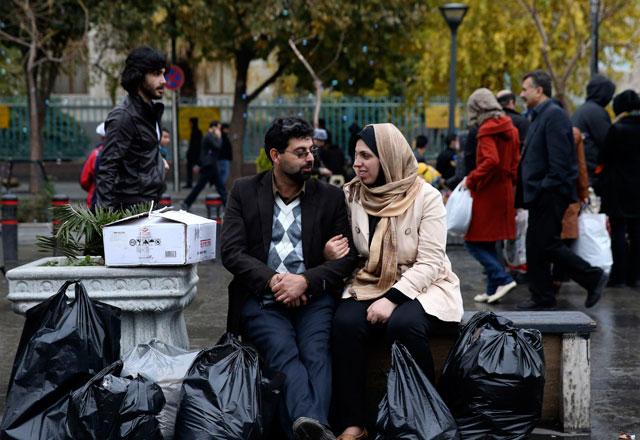TEHRAN –– Iran’s President Hassan Rouhani defended Tuesday a landmark nuclear deal with world powers that promises modest sanctions relief, saying his government did not fear “the few” domestic critics.
Rouhani’s defence came after repeated criticism by hardliners in parliament and the powerful Revolutionary Guards of the deal clinched in November that also requires Iran to curb temporarily parts of its nuclear drive.
“The initial agreement with the six major powers on the nuclear issue was not a simple task but very difficult and complicated,” Rouhani said in remarks broadcast live on state television.
“It required brave decision-making ... We should not and do not fear the fuss made by the few people or a small percentage criticising the deal,” he said.
The critics, however, have been united in questioning what Iran gains from the deal, under which the Islamic republic agreed to roll back parts of its nuclear drive for six months in exchange for modest sanctions relief and a promise by Western powers not to impose new sanctions.
They say fewer concessions could have been made by the nuclear negotiating team, led by Foreign Minister Mohammad Javad Zarif.
In recent weeks, hardliners in the conservative-dominated parliament have sought to form a committee to supervise the negotiating process but to no avail.
Government officials say the nuclear dossier will remain under direct control of the Supreme National Security Council and that final decisions still rest with Iran’s ultimate authority, supreme leader Ayatollah Ali Khamenei.
Rouhani on Tuesday insisted he has the full support of Khamenei.
“In all important and sensitive steps along the way, the supreme leader has backed the government and its policies,” he said. “Iran is in a special situation that needs to be replaced by normalcy.”
Iran’s economy has been hard hit by international sanctions, while the vital oil exports have been more than halved by US and European embargoes.
In Tehran, lawmakers meanwhile are readying a bill that would oblige the government to enrich uranium to 60 per cent if Iran is hit by new sanctions.
Under the nuclear deal in Geneva, Iran will limit its enrichment of uranium to 5 per cent. Higher level purities of above 90 per cent could provide fissile material for nuclear weapons.
The deal –– which is yet to come into force –– is aimed at creating a window of diplomatic opportunity for Iran and the P5+1 group of world powers, comprising the United States, Britain, France, China and Russia plus Germany.
The sides are engaged in negotiations to find a lasting solution to the decade-long standoff over Iran’s nuclear activities, which Western powers suspect mask military objectives despite repeated denials by Tehran.
Talks to remove remaining obstacles before the deal is implemented will resume in Geneva on Thursday.












